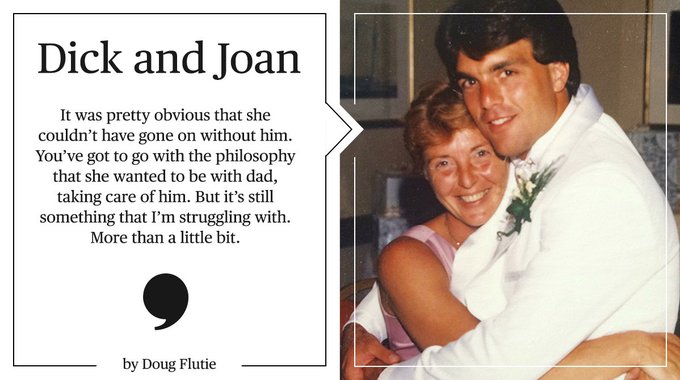
Carrie Fisher (left) is seen here with her mother in a photo captured in February 2016. (Getty)
A celebrity mother and daughter duo has died just one day apart.
84-year-old Debbie Reynolds passed away after suffering a possible stroke, according to TMZ. The publication reported that Reynolds was rushed to a hospital on December 28. Carrie Fisher, Reynolds’ daughter, died at the age of 60 after suffering from cardiac arrest on a transatlantic flight from London to Los Angeles.
Fans on social media believe that Reynold’s died of a broken heart after losing her beautiful daughter, who was famous for her starring role as Princess Leia in Star Wars.
See reactions from Twitter below, and also read about other deaths that have happened eerily close together and the science behind “dying of a broken heart.”
“Debbie Reynolds may well have actually died from a broken heart that is so sad oh my god,” @advil tweeted above.
Thomas Moore got emotional with the news, and wrote on Twitter what so many are undoubtedly thinking:
Lysa Stanton tweeted the beautiful photo below of Fisher as a baby with her gorgeous mother, with the hashtag #brokenheart.
Other Well-Known Deaths That Have Happened Eerily Close Together
Although it was more than just days, Prince and his ex-girlfriend Denise Matthews made headlines after dying just over two months apart from each other. Fans believe Prince, who died on April 21, was absolutely devastated after the death of Matthews on February 15th, and a broken heart could’ve contributed to his death. Both were just 57-years-old.
Another example is Zsa Zsa Gabor and her adopted son, Oliver Prinz von Anhalt. Gabor died on December 18 of a heart attack, exactly one week after the death of Prinz von Anhalt, who died December 10 after injuries sustained in a motorcycle accident.
Also eerily close together were the deaths of Katie and Dalton Prager, a husband and wife team famous for starring in Fault in Our Stars. Both died from complications from cystic fibrosis. Katie was just 26, while Dalton was 25. Katie died on September 22, 2016, following her husband’s death just five days earlier on September 17, St. Louis Post-Dispatch reported.
In November of 2015, US Weekly reported that former NFL star Doug Flutie let the world know via Facebook that he lost his mother and father, Joan and Dick, only one day apart; both to heart attacks.
“It is with a heavy heart that I am making this statement,” Flutie, 53, posted to Facebook. “This morning my family experienced the tragic loss of my father, Dick, and mother, Joan. My dad had been ill and died of a heart attack in the hospital and my mom less than an hour later had a sudden heart attack and passed away. They say you can die of a broken heart and I believe it.”
Also well-known are the deaths of Soul Men stars Isaac Hayes and Bernie Mac, who died only one day apart, as reported by the Daily Mail.
Hayes and Mac were co-stars of the movie, and nobody could’ve guessed that the two would die so close together. Mac passed away on August 9 of 2008, and Hayes followed him the next day on August 10.
The Science Behind Dying Close Together
Though science has primarily studied the connection between couples who pass away close together, the theories could also hold true for close friends and family members.
Harvard and Felix Elwert of the University of Wisconsin-Madison and Nicholas Christakis said in the best-known study on the subect that “It’s known as the widowhood effect, considered by social scientists to be ‘one of the best documented examples of the effect of social relations on health,” according to nymag.com.
The 2008 study by Christakis and Elwert stated that “research suggested that within the three months after one spouse died, the chance that the other will follow is anywhere from 30 to 90 percent.”
There’s also a term called “Broken Heart Syndrome.” Abby McDonald, author of the book Getting Over Garrett Delaney, stated the following, according to The American Heart Association: “You can die of a broken heart — it’s scientific fact — and my heart has been breaking since that very first day we met. I can feel it now, aching deep behind my rib cage the way it does every time we’re together, beating a desperate rhythm: Love me. Love me. Love me.”
According to the American Heart Association:
Broken heart syndrome, also called stress-induced cardiomyopathy or takotsubo cardiomyopathy, can strike even if you’re healthy. (Tako tsubo, by the way, are octopus traps that resemble the pot-like shape of the stricken heart.)
Women are more likely than men to experience the sudden, intense chest pain — the reaction to a surge of stress hormones — that can be caused by an emotionally stressful event. It could be the death of a loved one or even a divorce, breakup or physical separation, betrayal or romantic rejection. It could even happen after a good shock (like winning the lottery.)
Broken heart syndrome may be misdiagnosed as a heart attack because the symptoms and test results are similar. In fact, tests show dramatic changes in rhythm and blood substances that are typical of a heart attack. But unlike a heart attack, there’s no evidence of blocked heart arteries in broken heart syndrome.
In broken heart syndrome, a part of your heart temporarily enlarges and doesn’t pump well, while the rest of your heart functions normally or with even more forceful contractions. Researchers are just starting to learn the causes, and how to diagnose and treat it.
